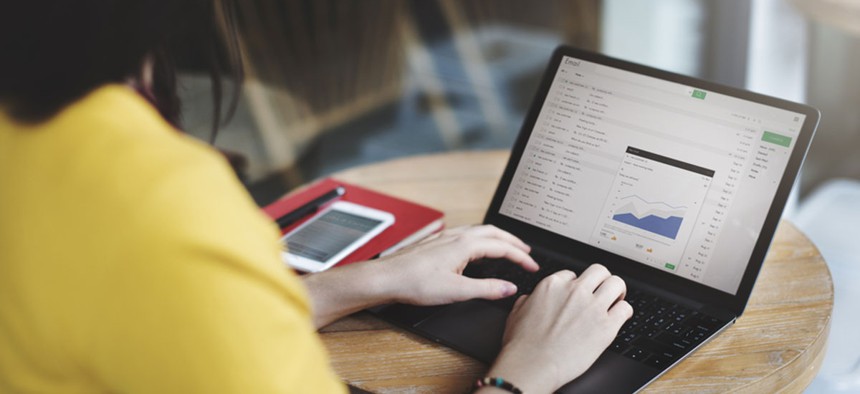
Rawpixel.com/Shutterstock.com
On Oct. 28, in yet another unexpected twist to an already exhausting campaign cycle, James Comey, the director of the FBI, sent a letter to eight Congressional committee chairs revealing that the agency would be reviewing a number of emails “that appear to be pertinent to the investigation” of Hillary Clinton’s email server. After the announcement, The New York Times reported that the new emails were, in fact, found in the course of the investigation into the alleged sex crimes of former Representative Anthony Weiner. The content of the emails remains unknown, as is how they got onto Weiner’s laptop; one plausible explanation based on the information revealed so far suggests that they are work emails that Weiner’s estranged wife, top Clinton aide Huma Abedin, accessed at home on his computer.
An investigation by The Atlantic has revealed that this is an exceedingly normal behavior. A 2013 study by the American Psychological Association found that more than half of all workers surveyed checked their work messages, including texts, emails, and voicemails, from smartphones or other home devices. A 2014 survey by Gallup found that nearly 80 percent of respondents view the ability to continue working from home in a “strongly positive” or “somewhat positive” light. In fact, this tendency has become so widespread that, by 2014, researchers had coined a new word to describe the stress it causes: telepressure. Whether employees check their email from home is likely to vary depending on the nature of their job. Abedin’s work—that of an elite political professional—is certainly the kind that typically necessitates lots of emailing, at any time, from anywhere.
In addition, an informal internal poll of Atlantic employees revealed that 100 percent access their work emails on home devices. The survey, which was conducted via Slack over a span of roughly three minutes on Monday afternoon, found that 97 out of 97 respondents have at some point in the recent past checked their work email addresses on their cellphones or non-work-related computers. One employee, who spoke on the condition of anonymity, asked, “has ... anyone not done that?”
Of course, Abedin and Clinton’s communications are likely far more sensitive than those exchanged among most of the nation’s employees on a day-to-day basis. Moreover, as The Atlantic has repeatedly explored, and Clinton herself has acknowledged, her use of a private email server was a serious misstep. Still, in the days since Comey’s letter regarding new “evidence” leaked to the press, the only revelation has been that Abedin may have occasionally worked from home. In other words, as our careful investigation shows, she’s just like us.






